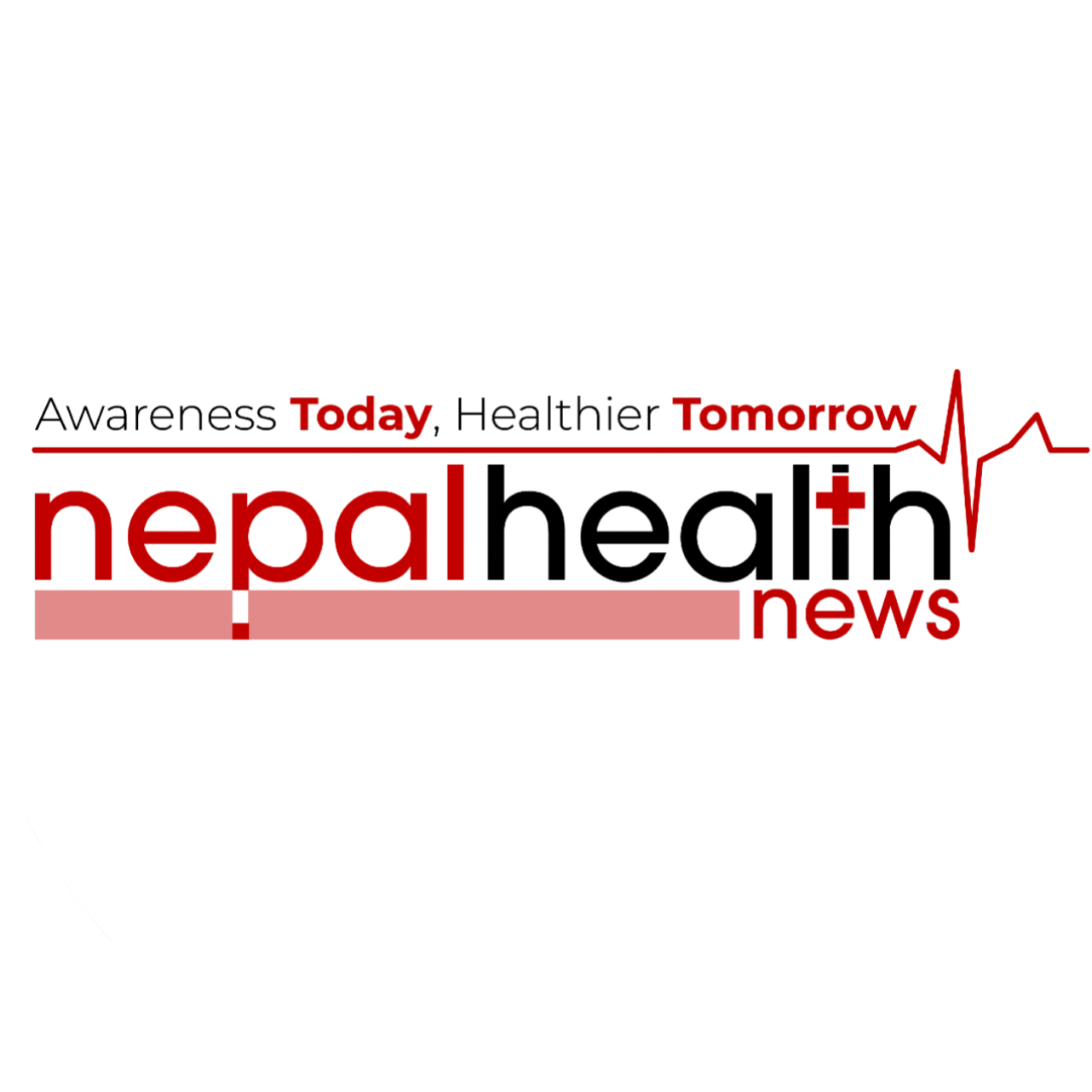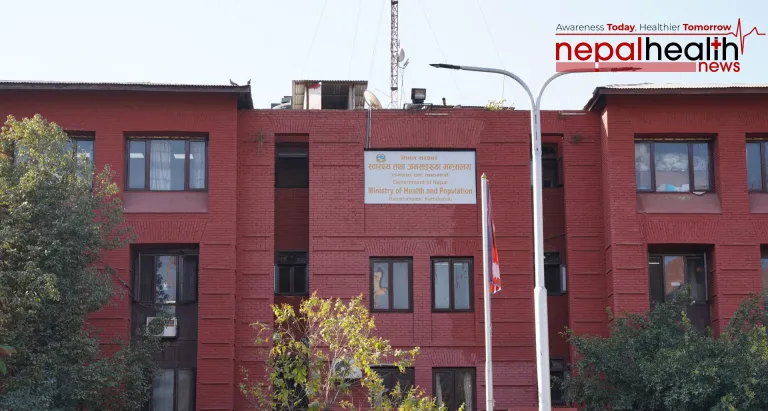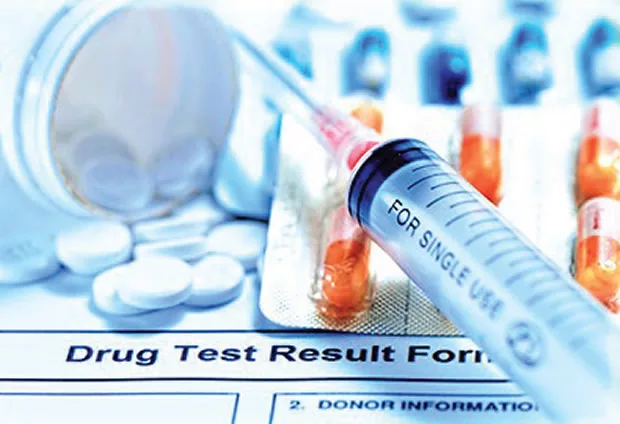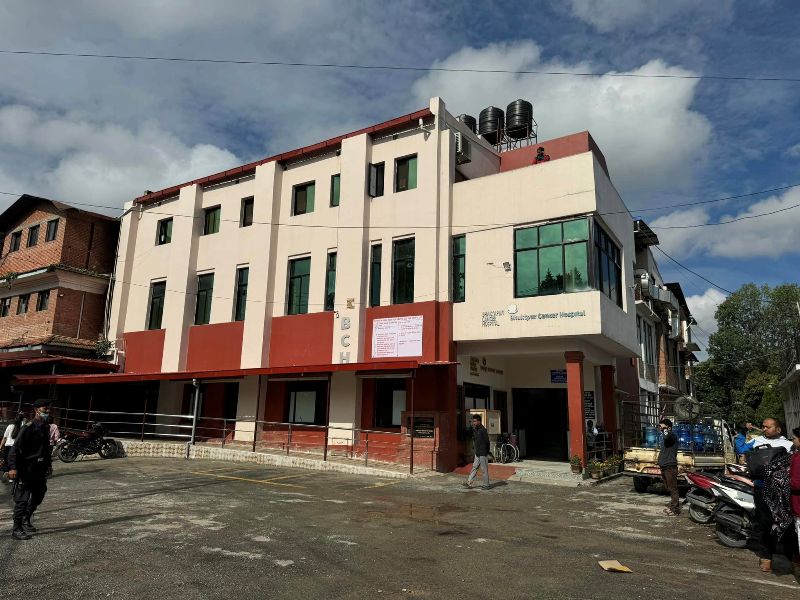Nepal Health News, Kathmandu : In the year 2081 BS, Nepal's health sector witnessed a mix of achievements, controversies, and the effects of foreign aid cuts. This year saw discussions around health insurance, controversy over the appointment of a junior official as Health Secretary bypassing seniors, and notable events such as the availability of the Human Papillomavirus (HPV) vaccine for cervical cancer and the arson attack at an herbal medicine company.
Protests by supporters of the former king caused significant damage to health infrastructure, severely disrupting medicine production. On the other hand, foreign aid cuts affected basic health services, particularly impacting women and children in remote villages. Despite these challenges, the health sector achieved some significant milestones this year.
Around 1.7 Million Adolescent Girls Vaccinated with HPV
The Ministry of Health and Population announced that the HPV vaccine campaign — targeting cervical cancer — will be integrated into the regular immunization schedule starting next year. This year, the ministry conducted the HPV vaccination campaign from Magh 22 to Falgun 6, during which around 1.7 million adolescent girls were vaccinated.
Cervical cancer ranks first among cancers affecting women in Nepal and fourth globally. Statistics show that four women die every day from cervical cancer in Nepal.
The Path Shown by the Health Insurance Report
Although the government launched the Health Insurance Program to make quality healthcare accessible to citizens, questions about its sustainability have persisted. Experts suggest that without reforming the structure and functioning of the Health Insurance Board, the issues will continue.
In the ten years since its implementation, only about 20% of Nepal’s citizens have enrolled in health insurance. A recently released report by the Health Insurance Improvement Taskforce outlines several paths to strengthen the program.
It recommends increasing the health benefits package to a minimum of NPR 500,000, adjusting premiums and co-payments based on individuals’ ability to pay, restructuring and rebranding the insurance program, fully automating the Board through modern information systems, and expanding the benefits package. It also suggests making health insurance compulsory for all citizens and mandatorily enrolling government employees and organized sector workers.
Recently, Dr. Raghuraj Kafle was appointed as Executive Director and Chandra Bahadur Thapa Chhetri as Chairperson of the Board, raising hopes for significant improvements in the health insurance sector.
100% Mandatory Graphic Warnings on Tobacco Products
The Ministry of Health and Population has mandated that from Bhadra 1 (mid-August), 100% of the surface of tobacco product packages must carry graphic health warnings.
Previously, 90% coverage was required. Now, the "Directive for Printing and Labeling of Warning Messages and Images on Tobacco Products, 2081" has been approved. It prohibits the production, sale, and purchase of tobacco products that do not display graphic color warnings.
Cancer Medicines for Children
Under the "Global Platform for Access to Childhood Cancer Medicines," Nepal has received three types of essential medicines for childhood cancer treatment for an initial one-year phase. These medicines are now available at Bhaktapur Cancer Hospital, Kanti Children’s Hospital, Patan Academy of Health Sciences, and Bharatpur Cancer Hospital.
According to the agreement, starting from 2025 until 2030, 35 types of essential childhood cancer medicines will be provided free of charge. In Nepal, approximately 1,500 children are diagnosed with cancer each year.
Free Stroke Medicines
The government has decided to provide free treatment and medicines to citizens suffering from brain stroke. With support from the American donor organization Direct Relief and coordination from Nepal’s One Heart Worldwide, free stroke medicines and treatment will initially be available at Bir Hospital, Tribhuvan University Teaching Hospital, and Bharatpur Hospital.
Free Treatment for Burn Victims
The government has decided to offer free treatment to burn victims for all burn-related conditions, excluding cosmetic surgeries.
GMP Certification for Nepal Drugs Limited
Nepal Drugs Limited has received Good Manufacturing Practice (GMP) certification from the Department of Drug Administration, meeting World Health Organization (WHO) standards. After meeting all required standards, the company earned this international recognition five decades after its establishment.
This certification enables the company to sell medicines, export abroad, and participate in international tenders. Currently, Nepal Drugs Limited produces Oral Rehydration Salts (ORS), tablets, hemoglobin fluids (Part-1 and 2), and 14 other types of medicines.
Genetic Testing for Breast Cancer Now Available in Nepal
Hereditary testing for breast cancer (gene sequencing) is now available at the National Public Health Laboratory. Previously, samples had to be sent abroad. Early identification through this test can enable timely treatment and prevention of breast cancer, according to medical experts.
Ministry of Health Ranked Second in Semi-Annual Progress Report
In the semi-annual progress report based on ministerial milestones, the Ministry of Health and Population ranked second among ministries and third among all government bodies. According to the Office of the Prime Minister and Council of Ministers, by the end of Poush (mid-January), the Health Ministry had completed nine out of 11 targeted activities.
The Ministry scored 81.8 points based on these achievements and 70 points based on progress toward ongoing milestones for the fiscal year.
Damage to Herbal Medicine Company
On Chaitra 15, during protests by former king’s supporters, an arson attack at the Herbs Production and Processing Company Limited in Koteshwar caused damage worth millions. The building, equipped with Good Manufacturing Practice (GMP) facilities, was damaged, and raw materials, production equipment, packaging items, furniture, and documents were destroyed.
If reconstruction is delayed, it is estimated it could take years to restore the company to its original condition.
Impact of USAID Aid Cuts on Health Sector
The health sector was hit hard by the United States Agency for International Development (USAID) halting its support. Long-term impacts are expected on programs related to nutrition, vaccination, maternal and newborn health, reproductive health, and others.
This cut is also expected to affect Nepal’s goal of achieving Sustainable Development Goals (SDGs) by 2030.




